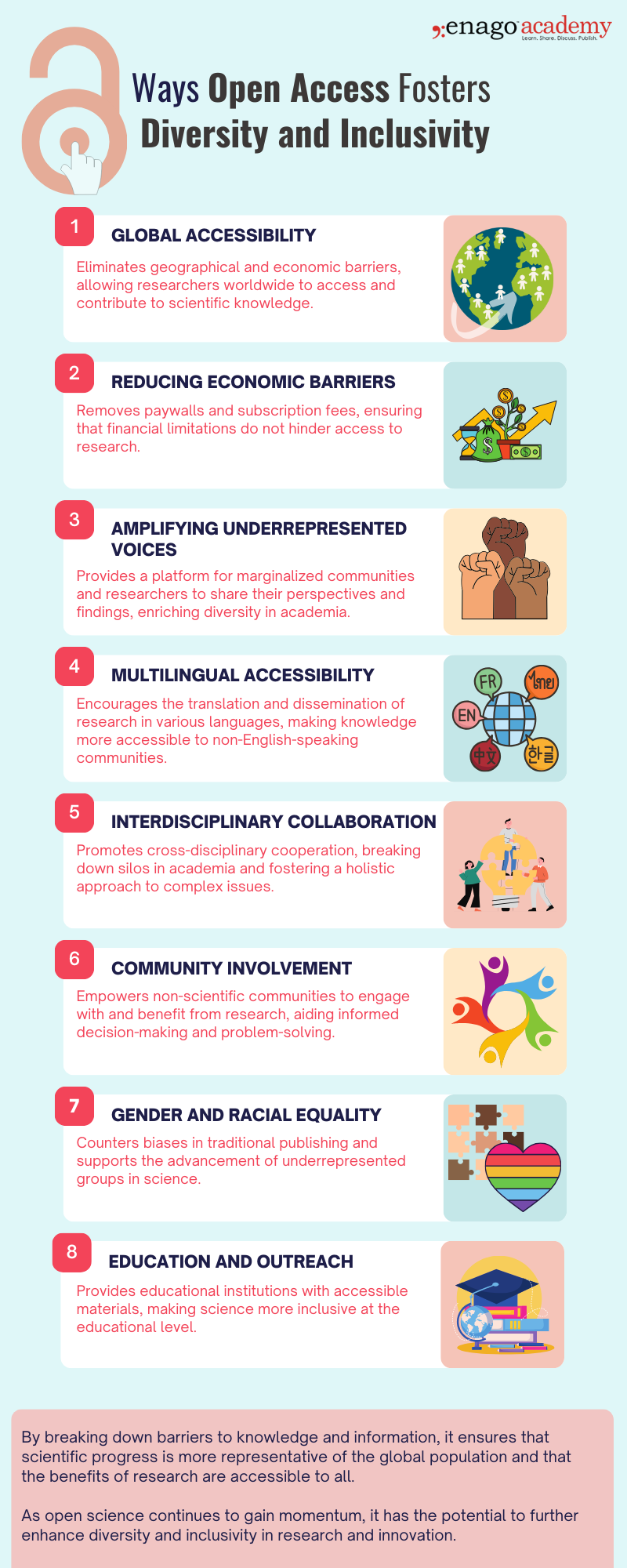Democratizing Science: The power of open access in fostering diversity and inclusivity

Open access encompasses a set of principles and practices with the overarching goal of making scientific research across all fields accessible to everyone, while also ensuring that the process of creating this knowledge is fair, equitable, and sustainable. It encourages scientific collaboration, the open availability of knowledge in multiple languages, and the involvement of individuals and groups beyond the traditional scientific community in the research process. It plays a crucial role in addressing complex global challenges and upholding the fundamental human right to share in the benefits of scientific progress, as articulated in the Universal Declaration of Human Rights.
The core values underlying open access involves commitment to quality, the recognition of knowledge as a global public good, the pursuit of equity and fairness, the celebration of diversity, and the promotion of inclusiveness. Let’s further understand how the principles of open access emphasize transparency, equal opportunities, responsibility, collaboration, flexibility, and sustainability, with the aim of realizing “Community over Commercialization“.
Fostering Diversity and Inclusivity With Open Access
By removing financial, geographical, and institutional barriers, open access to scientific knowledge opens doors to a more equitable and diverse participation in the scientific endeavor.
Open access is a powerful tool for fostering diversity and inclusion in knowledge sharing. By democratizing access to information, supporting interdisciplinary research, enhancing educational opportunities, and delivering social and economic benefits, open access plays a crucial role in creating a more equitable and inclusive global community.
However, it is essential to recognize that open access is not a panacea for all issues of diversity and inclusion. Efforts must be made to ensure that the benefits of open access are accessible to all, regardless of linguistic barriers or disparities in internet access. Additionally, promoting diversity and inclusion within the open access community itself is an ongoing challenge that should be addressed through thoughtful policies and practices.
As the open access movement continues to evolve, it remains a powerful force for positive change in academia, science, and education, making knowledge accessible to all and fostering a more inclusive and equitable world. Explore the power of open access with Enago Academy’s Open Platform and share your opinions with a diverse audience.










